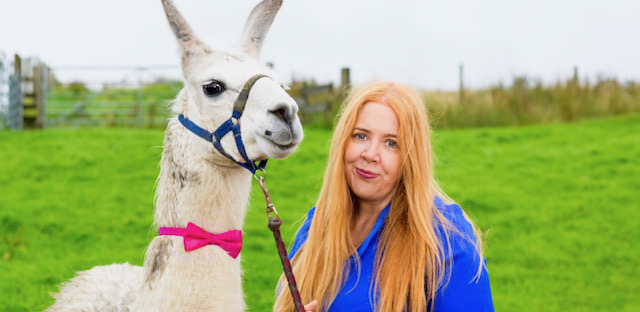After 14 years working as a senior manager in the NHS, Celia Gaze changed direction. She set about turning her partner’s family-owned 30-acre hill farm in rural Lancashire into a venue. “It would have just become another barn conversion otherwise,” she says.
Her original plan was to make The Wellbeing Farm a corporate hospitality venue when she opened in 2013. With her personal experience of professional burn-out, her message focused on wellbeing and stress – but the market response wasn’t encouraging. “To be honest, I was a little bit ahead of the times,” she laughs.
It wasn’t an easy journey. “I went through every conceivable battle to set this up. The local authority could have been more supportive. I had plenty of rejections from the banks.”
She shifted the focus to weddings. The advance planning of staffing levels and food and drink, and greater levels of upfront payment, provided a better business model. And creativity flowed – the wedding venue comes complete with bow-tie wearing llamas, alpacas and donkeys. She may be the founder and managing director but her job titles also include being the Chief Purpose and Amazement Officer & Head Stable Maid for the Llamas.
But then as the business accelerated, the Covid pandemic hit. Instead of mothballing the venue, Gaze kept all her staff on. “For one thing, we had to continue to look after our animals but also it meant that we carried on getting inquiries. Couples still wanted to get married.
While she was in lockdown, she read about the B Corp movement. It provided a missing piece in her jigsaw. “You join the NHS to help people create a better society, so coming from there meant that pure profit was never my prime motivator.”
She engaged a student from the University of Lancaster to work with her on B Corp accreditation for The Wellbeing Farm. “Students still needed to do projects,” she says.
The process was demanding. “They want your payroll records, the health records of your staff, your farming records, animal care records, the biodiversity, your electricity monitoring, everything. It was a lot of work but it kept me busy.”
Almost in tandem, she went on the Two Zero Resurgence programme which helped to provide a greater framework and consolidated her approach. The team at Two Zero have been very supportive, she says. “It’s a programme that makes you think more widely and being in the atmosphere of mingling with like-minded people is really helpful.”
For example, she employed a student to work with her to map and record every detail of the venue’s systems and processes. (Gaze is very active within local education – she’s an enterprise advisor at Blackburn College, liaises with universities, and champions mental health and sustainability within several catering colleges.) “I had to get it all out of my head and into a website for the staff. It took about eight months and 300 processes to document everything, but now they know everything about how to run a successful event. Since doing that, I have been able to work on the business rather than in it. And that has been one of the biggest factors behind the growth of the business.”
In 2021, The Wellbeing Farm became one of the UK’s first hospitality businesses to gain B Corp accreditation.
She believes that this means that The Wellbeing Farm has joined a global growth community. “B-Corp companies are clearly articulating their purpose and are looking after the planet, their staff and the community – and they are all experiencing exponential growth,” she says. “This is about the power of business to transform society.”
The Wellbeing Farm’s B Corp status is a positive differentiator for couples when choosing a venue, she says, and it’s the number one question she gets from potential employees. “We are not experiencing recruitment problems,” she says. “Young people want to work for businesses with a purpose.”
Since the pandemic, trends have altered. The wedding business is no longer confined to Fridays and Saturdays. “There’s been big growth in midweek and in smaller weddings. People want an event that is more distinctive and memorable. Customers are coming from further afield and at least 20% of our inquiries are coming because of our sustainability credentials.”
The original concept of The Wellbeing Farm as a corporate hospitality venue is now also a revenue-generating reality. “As companies have more people working from home, they need a central point to gather occasionally – and they like to use an ethical green venue to do that.”
The success of The Wellbeing Farm is rippling out into the local economy. “We host about 100 weddings each year and each one brings in 70 to 120 people to the pubs, restaurants and hotels in this area, when previously nothing would have brought them here. We are bringing benefits to the whole area.”

“We are not experiencing recruitment problems. Young people want to work for businesses with a purpose.”
Celia Gaze, Founder & Managing Director
